by admin | Oct 25, 2019 | Blog
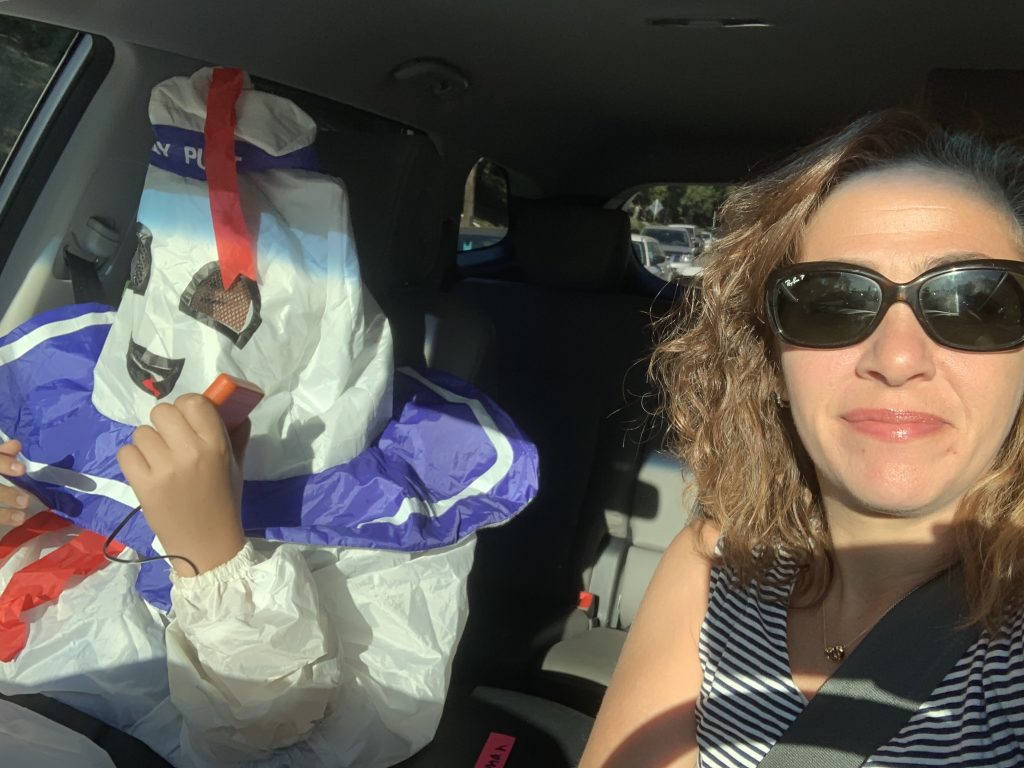
Lately I’m considerably more conscientious about preparing my children to successfully launch into adult life. Maybe that’s because my children are 13- and 16-years old and college is around the corner. Maybe it’s because I’ve seen in my practice and in the literature that young people are just not as ready for real life when they leave for college or start work. When I grew up, adulting wasn’t even a word, now the lack of it is an epidemic and a syndrome (check out this fascinating look at the rise of the actual term adulting.).
A few years ago, I saw Julie Lythcott-Haims speak to a large group of teens and parents. I read her book (How to Raise an Adult: Break Free of the Overparenting Trap and Prepare Your Kid for Success), and I consider myself fairly up to date on parenting and child development. But during her talk, Haims said something that resonated so deeply. She said, “Our job as parents is to put ourselves out of a job.” That was it. So simple. It was like being hit over the head with a cast-iron frying pan and suddenly, my mindset shifted.
Around the same time when I was writing Ignore It!: How Selectively Looking the Other Way can Decrease Behavioral Problems and Increase Parenting Satisfaction I stumbled across a flyer from the Catholic High School for Boys in Little Rock. It reads “If you are dropping off your son’s forgotten lunch, books, homework, equipment, etc., please TURN AROUND and exit the building. Your son will learn to problem-solve in your absence.” Yes, Yes, Yes!!! The universe was telling me (and every other parent) that something had to change. We’ve got to stop enabling our kids to sit back and have their parents solve their problems.
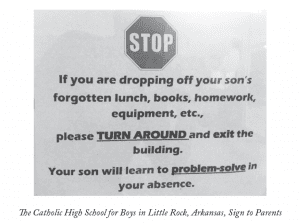 With my parenting brain realigned I understood there were lots of things I was doing for my children that needed to stop. Out was checking up to see if they did their homework. Out was making sure the gym uniform was washed, dried and returned in the backpack. Out was cooking every morsel of food that was to be put into their mouths. Additionally, I made sure to give the kids several chores in the house that they were required to do on a daily basis. When my kids instinctively ask for help opening a cheese stick (yes 13- and 16-year-olds still ask this) or how to spell astronaut I now tell them to figure it out.
With my parenting brain realigned I understood there were lots of things I was doing for my children that needed to stop. Out was checking up to see if they did their homework. Out was making sure the gym uniform was washed, dried and returned in the backpack. Out was cooking every morsel of food that was to be put into their mouths. Additionally, I made sure to give the kids several chores in the house that they were required to do on a daily basis. When my kids instinctively ask for help opening a cheese stick (yes 13- and 16-year-olds still ask this) or how to spell astronaut I now tell them to figure it out.
With Haims’ phrase and the Catholic school’s flyer in mind I’ve mostly avoided overparenting. Recently a teacher approached my high schooler to say, “Your mother sent me an email about your grades. Let’s talk after class.” My daughter looked at the teacher and said with complete confidence, “There’s no way my mother sent you an email.” She was 100% correct. There was absolutely no way I would send an email to my daughter’s teacher about her work or grades. I would have recommended my child email the teacher directly if he/she wanted to get some extra help. If the child chose not to get the help, then that child would have to deal with the consequences of not be prepared for the next test. Turns out the teacher was speaking with the wrong student.
And so it’s been going until I was forced to decide how far this adult preparation was going to go. This morning I allowed my son to miss his bus so we could have breakfast out together before school. This is normally my husband’s weekly special time with my son but in his absence this week I took over. I was planning on dropping my son at 8:30 am and meeting a colleague at 9 o’clock. Everything was going perfectly. We were enjoying each other’s company. We were discussing life and important topics over a chocolate almond croissant. When I mentioned the Say No to Drugs Red Ribbon Week campaign at school my son looked up in a panic and said, “There’s a Halloween costume contest at lunch today.” At 8:11 he’s realized that he did not have a costume. He forgot. Now I’m faced with a choice. We are two minutes from school and at least 10 minutes from home. We really didn’t have time to get his costume and for me to meet my coworker without being late. Morosely, we got up and ambled to the car.
On the way there I’m muttering about how we really don’t have time for this. My son is muttering as well. He’s saying, “It’s ok. We don’t have to get it.” But my heart is breaking. He’s such a good kid on all fronts. He’s generally responsible. He does take the dog out and empty the dishwasher with a minimum amount of complaining. He’s self-directed and above all, I know he would go out of his way to help me in an emergency. It all comes down to one question: Is this one of those times I should not rescue him and let him suffer the consequences for forgetting something?
I don’t want this question. I just want to enjoy my breakfast with him, drop him off and arrive on time to my next appointment. And I really really don’t not want to reinforce any kind of disorganization. However, I looked at the kid in front of me. He absolutely loves Halloween. School is mostly boring and lame, and this is one of the fun days (even if it has nothing to do with actually preventing drug use). Do I want him to miss it because I have a principle to uphold?
It turns out that I didn’t. More than I wanted to teach him a lesson, I wanted him to have his costume today. I’ve taught him many lessons, and I will continue to do so. But I realized there isn’t an all or nothing in this parenting gig. Consistency and following through are important. I made a video on this exact topic yesterday. But there are times that instead of being the parent I need to be a human being who has empathy for another human in distress. I’ve had plenty of moments when I’ve frantically called my husband because I’ve forgotten something important. It happens to the most organized among us.
So, I quickly turned the car around and started driving toward home. If this were the 10th time my son forgot something for school this would have turned out differently. But it wasn’t. It was the first. My son and I said nothing for a few blocks, and then he said, “I think we can make it.” We caught every green light on the way home, and I took the toll road (expensive but fastest route) on the way back to school. Because my son knows that I don’t normally rescue him if he forgets something, he was unusually grateful. A block from school he rushed out of the car flashing a smile. I rushed back to the highway.
I arrived at exactly 9 o’clock on the dot. My son was right. We both made it. Still thinking about if I made the right choice, I looked down at the floor of the passenger seat to see my son’s pencil case laying there. In his rush to get his costume on in the car he must have dropped it. I will not be dropping them back at school.
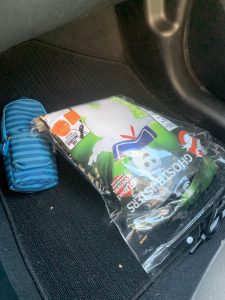
by admin | Oct 21, 2019 | Blog
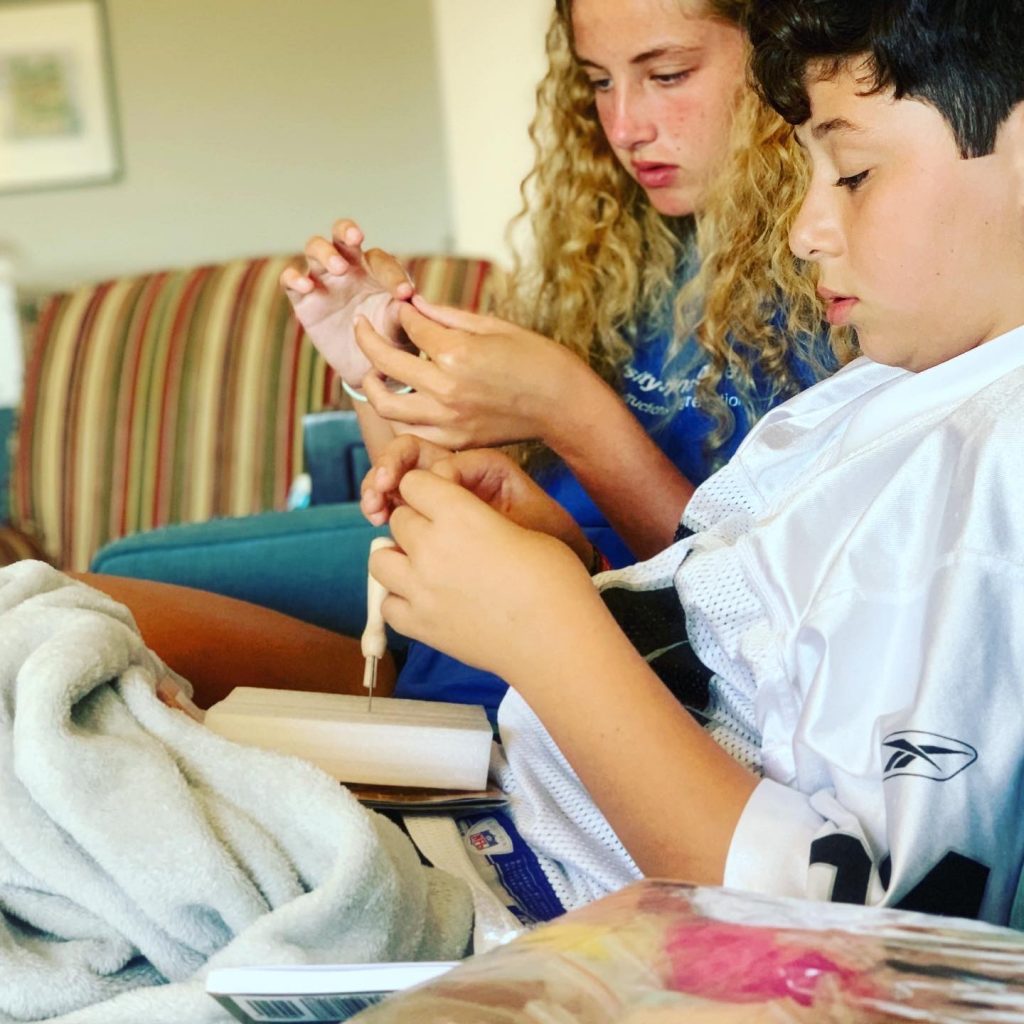
Google the word “teenagers” and a plethora of How to Survive Your Teenagers articles will appear. The memes and GIFs are endless. Sometimes they are funny (really funny). But mostly they just drive home the point that teens are unbearable beings that have no manners, roll their eyes in disgust and treat their parents without respect or consideration. As a family coach I know for sure that this is often the case, or at least it feels this way. However, when teens are consistently seen and portrayed as demons that is pretty much all many parents can see.
I don’t find demons in my house. My kids friends are not demons and neither are any teens I’ve met (and I’ve met some really tough kids as a social worker). When I see young people, I see promise. I see possibility. I see the future. In an effort to rebrand kids ages 13 to 19, here’s an ode to all that’s good about parenting teenagers.
Teen are funny. Teens are known to be a bit impulsive. What’s so great about that is they often say whatever comes to mind, and that can be insanely funny. They don’t have filters either. Also, funny! Don’t take your kids so seriously and you will start to see the funny.
Teens aren’t jaded. They aren’t bogged down by past experience, and they see the world as changeable. They think they can fix global warming. They think they can elect people who will care about gun violence. They think a better world is possible. For this, I’m eternally grateful because we need changemakers now more than ever.
Teens are sponges. They think they know it all but in reality, they don’t know all that much. It’s incredible watching kids suddenly make a connection from what they learn in school and real life. It’s adorable taking teens to try dumplings or roller skating for the first time. They have a zest for life when they give something new a chance. It reminds me of watching toddlers discover the world around them but on a much bigger scale.
Teens are savvy. They can figure out new technology before their parents can sign into their iPhone 7s. They have never known a card catalog or a AAA trip tic, and that’s amazing. We can learn a lot from our kids if we can get past the brief Mom-you-are-an-idiot-for-not-knowing-how-to-do-this moment. Being tech savvy also translates into figuring other stuff out too if teens are allowed to make mistakes and learn from them.
Teens do chores. Sure, younger kids can and should do chores. But teenagers can do them more competently and at a more advanced level. One of the best parts of my kids getting older is they can actually help me around the house. They take the dog out and empty the dishwasher. Both jobs I dislike. Teens who drive can also run to the drugstore for a prescription or the supermarket for items for dinner.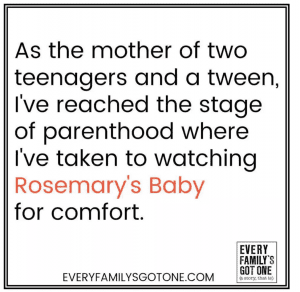
Teens are good company. If you can find just the right activity, kids are great companions. Look for a tv series or program, a music group or type of food where you can bond with your teen. What to do if you have nothing in common with your kids? Pretend. Find something your child enjoys and take an interest.
Teens are dedicated friends. Part of typical development is for teens to move their focus away from their home and parents. Their friends become vitally important, often to the dismay of their parents. But it’s fantastic to see the lengths teens will go for their friends. They bake them cakes. They rescue them even when it’s inconvenient. They stay up too late talking to them about every minute detail in life. This is all good practice for adult friendships, including transitioning to a different relationship with their parents.
by admin | Oct 5, 2019 | Blog
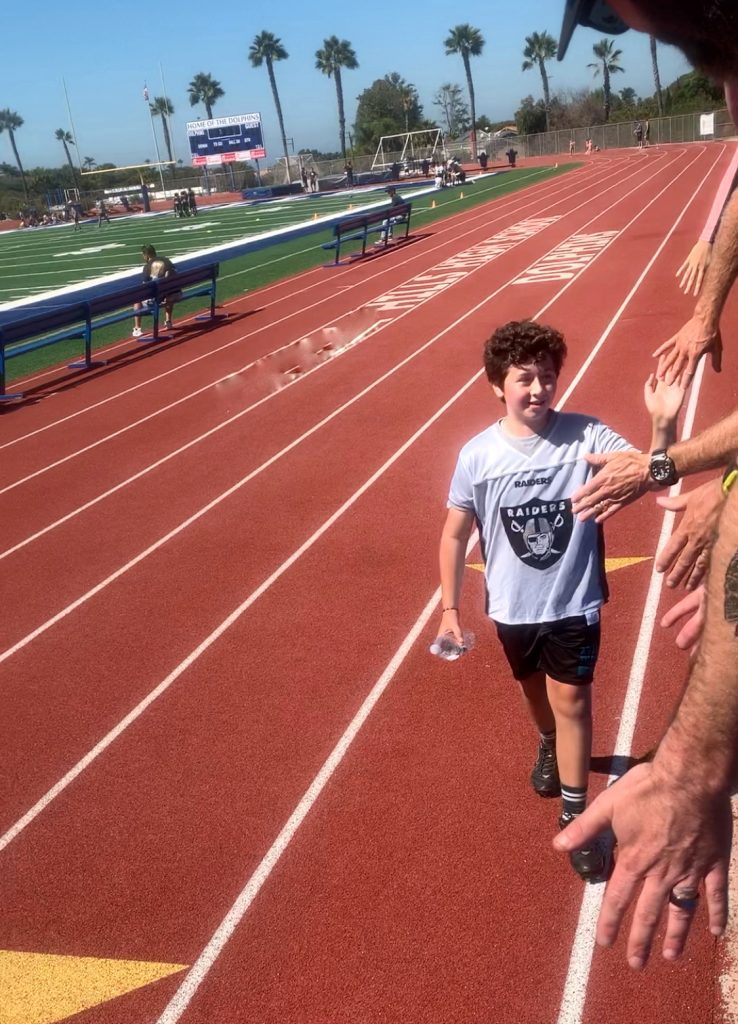
I love to watch my kids play sports. I love watching water polo. I love flag football. I love the fast pace of the basketball games. I even love the boring (sorry, it’s true) baseball games. I don’t care if my kids win. I don’t particularly care if they play that well. As a parent, what makes my day is watching my kids have fun. Sadly, there are almost always one or more parents who just suck the life out of the game. They seem to live or die by every play. They offer endless chirps of advice from the sidelines. None of it is actually helpful. Their kids clearly hate it. It’s the #1 reason kids stop playing sports by the age of 13.
My kids are not sports superstars. They are not getting a scholarship or even hoping to be a walk on somewhere. They get out there to exercise, have fun, and make friends. What I enjoy at my kids’ games is seeing them have a moment. Sometimes it’s making a great catch or scoring a goal or a touchdown. More often than not, it’s a moment that’s nearly imperceptible to every other spectator. It’s when my son knows he did his best, and he flashes us a little smile. It’s when my daughter gets aggressive with another player (totally normal in water polo), and we marvel at how far she’s come in the game.
Unlike the typical sideline sports parent debacle, today I got a glimpse of what sports could be like if all of the parents behaved themselves and enjoyed the game.
My 12-year-old son, Emmett, is in his last year of flag football. At the game today my husband and I noticed 10 dads who appeared to be having a party in the stands. It was like they had just come from the best tailgate and couldn’t wait to see the big game. But the big game was flag football for middle schoolers. Instead of heckling “helpful tips” to improve play, they shouted supportive sayings to every player. They laughed (a shockingly rare occurrence on the sidelines). They cheered. They did the wave.
At one point my son made an interception. The crowd went wild. Then Emmett did it again, but this time ran for a touchdown. The fun dads asked us his name. Then they started chanting “Emmett, Emmett, Emmett”. My son did the tiniest of celebration moves to acknowledge the crowd, and we all chuckled. This group of men made the game entertaining not only for the kids, but for the parents. It was pure joy, and I’m grateful that my son had the game of his life while these dads were around. Not for the glory. But because their enjoyment was contagious.
At the end of the game, the dads all lined up at the front of the bleachers and yelled for Emmett to come by for a round of high fives. Not one of these guys knew Emmett before the game. They treated him like the most coveted player ready to be drafted. Then they called over each boy on the team for their high fives. All of the boys went home with a smile.
My son is an average player with good heart. He’s never the center of the big play. He’s typically one of the last players in and he’s mostly ok with that. Today, these dads brought their A game to flag football and made my son’s year. I wish every kid could have a sports parent section like this at every single game. It certainly beats heckling our kids to do better. Thanks Dads!

These dads are the heroes of today’s flag football game
by admin | Jul 10, 2019 | Blog
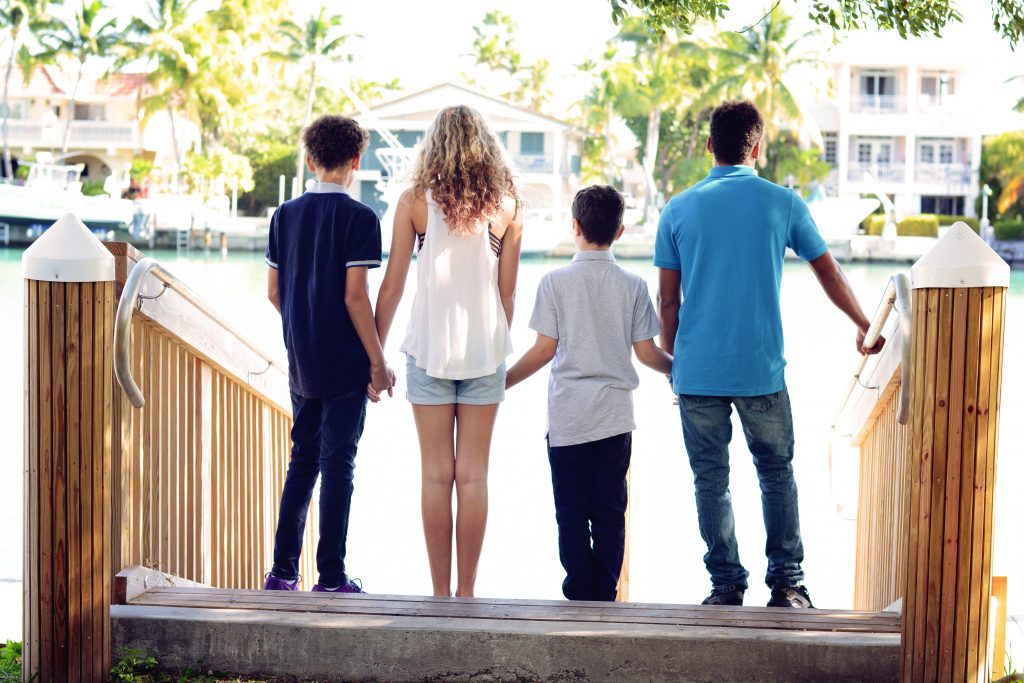
Fortunately, my daughter finally learned to hold her own sippy cup.
Unfortunately, my milk dried up.
Fortunately, my son started to walk then run.
Unfortunately, now he runs away from me every chance he gets.
Fortunately, I’m soaking up my son snuggling quietly on my shoulder.
Unfortunately, it’s only because he’s teething and miserable.
Fortunately, my daughter started preschool, and I now have a minute to myself.
Unfortunately, I’m overwhelmed with what to do in those hours.
Fortunately, my son started Kindergarten without looking back.
Unfortunately, I was hysterical in the parking lot. He looked so small.
Fortunately, my daughter made friends in the playground.
Unfortunately, she wasn’t invited to the birthday party.
Fortunately, my kids are spending the night over at their grandparents’ house.
Unfortunately, I’m too tired to go out for date night, and I just want to sleep.
Fortunately, after I dreamed of it for years, my son went off to camp for two weeks.
Unfortunately, I can’t do anything but think of what he might be doing and if he’s happy.
Fortunately, my daughter made the sports team. Hooray!
Unfortunately, now we can’t go on family vacation without letting someone down.
Fortunately, my kids learned to make pancakes and tacos and bake cookies.
Unfortunately, I’m not needed in the kitchen anymore.
Fortunately, my daughter received her driving permit, and she’s exhilarated.
Unfortunately, soon enough she will be out more than she’s in.
Fortunately, my son can play for hours on his own in the garage making robots and gadgets.
Unfortunately, I’m now thinking I should be more careful what I wish for.
Fortunately, my kids are looking into college and toward their bright futures. I’m so proud.
Unfortunately, I’ve just put myself out of a job. They are gone, and it’s over.
Fortunately, they know I love them and now adventure awaits us all.
by admin | Jun 9, 2019 | Blog
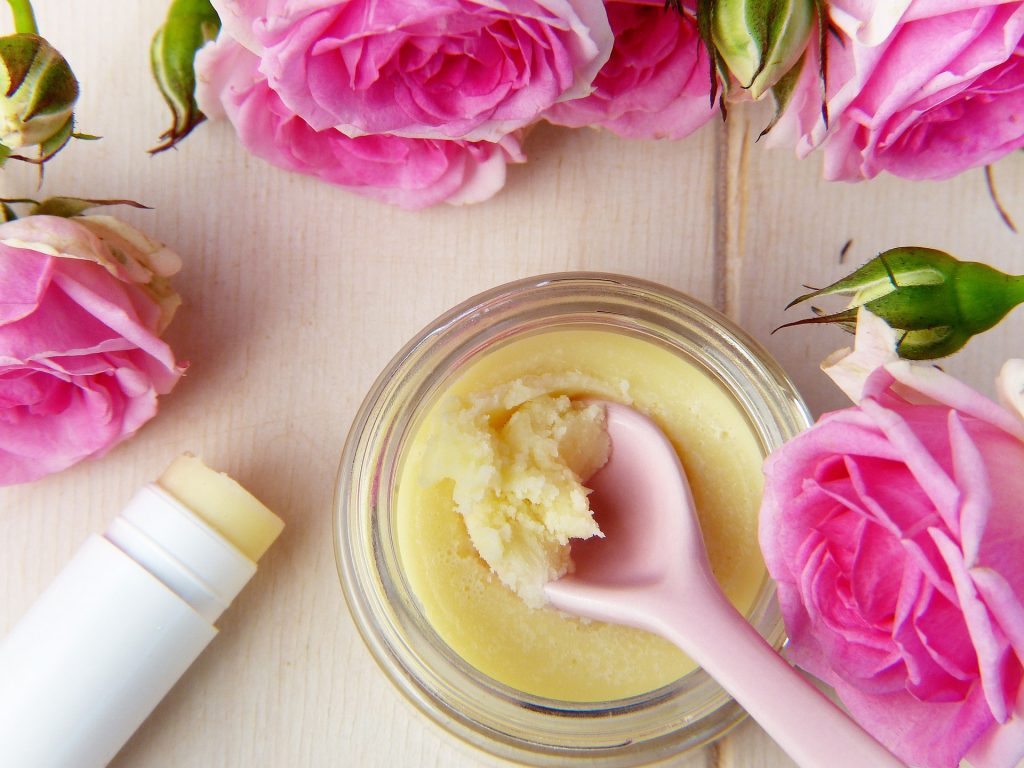
It would be difficult to find a human being out there who wouldn’t support offering modern mothers an opportunity for a little self-care. There’s nothing wrong with a mani-pedi or a mid-afternoon coffee with friends. I can’t quarrel with a girls’ weekend away or a sacred nightly bubbly bath with a candle and some calming music. All too often mothers sacrifice their own wellbeing to devote all of their energy to their families and work. However, when self-care becomes a hashtag and an achievement sport won by those with the most organic, product-filled perfectly-styled Instagram feed I’ve got a big issue.
You can thank Gwyneth Paltrow, founder of Goop, who led the way for massive content marketing to moms. She’s a master even depicting divorce as an act of positive self-growth performed in timeless $225 jeans. The idea that moms in particular are deserving of attention and care is very attractive. But most busy parents don’t have time or money for cleanses and jade eggs and shilajit smoothies. As it turns out, the version of “self-care” espoused by many a celebrity mom and Instagram star might not be helping parents. In fact, it’s likely hurting.
We live in a commercial capitalistic society. People are entitled to make whatever products tickle their fancy, and they are entitled to make money from those products. The problem is that mothers are being bombarded with placenta repackaged as a vital life-affirming product, with rock eggs that balance hormones and essential oils that cure, well, everything. It feels like the celebrities promoting their ideals and products are picking on vulnerable, hanging-on-by-a-thread, guilt-ridden mothers. That’s no cool.
It wasn’t always this way. A generation of women watched Martha Stewart and bought her magazine because it felt good to do a modicum of what Martha put out there. Folding a napkin just so made us feel more sophisticated and good about our efforts. No one felt badly that they weren’t actually Martha Stewart. Her ideals were almost satire. In fact, if you haven’t seen her show with Snoop Dog, stop reading right now and watch. Even Martha gets the joke. Unfortunately, the joke is long gone with the rise of mommy lifestyle gurus and celebrity product hawkers. They are offering products we don’t need, and these suggestions are just making us broke and feeling worse about ourselves.
There’s a big difference between celebrities who make us feel crappy about our less-than-perfect figures or skin and those who have a stake in the game. Celebs like Gwyneth Paltrow and Jessica Alba are creating a culture that encourages moms to spend more for seemingly safer, natural and organic products. Moms can’t help but feel like selfish dolts if they choose Huggies over the”super-absorbent, eco-friendly* diapers made with plant-derived and sustainable materials” available at Honest. The problem with girl-powered feminist consumerism is that it’s a wolf in sheep’s clothing. Yes, we’d all love to have luminous skin, a svelte clean body and a freshly steamed vagina while simultaneously saving the environment. But there’s a huge cost, and we are lining the pockets of the already rich while parents are going broke based on unsubstantiated claims.

Credit: BBC:https://www.bbc.com/news/world-us-canada-45426332
The Honest company was valued in 2015 at $1.7 billion (with a b). So, it’s no sweat for it to settle a few pesky lawsuits that reveal the company might not be so, ahem, honest. These “girlfriends” are preying on the guilt that’s second nature to most moms. Offering unsubstantiated advice that directly benefits the person making the claim makes me feel dirty. Oh wait, there’s a $66 jade egg for that available at Goop. Turns out Gwyneth Paltrow has also agreed to settle a lawsuit because those jade eggs don’t actually “cultivate sexual energy, clear chi pathways in the body, intensify femininity, and invigorate our life force.” You can get your money back here.
Sometimes the worst offenders are the social media influencers. I have absolutely zero dispute with mothers making a living off of their followers with full disclosure. Many work hard to cultivate a following and are making helpful recommendations about books, family travel and even working on body positivity. Unfortunately, some influencers lose all sense of self, turn greedy and become pimps to the latest unnecessary product. A momblogger in my community recently had extensive plastic surgery (the mommy makeover) and she posted prodigiously about it on her site. It turns out all of her content was sponsored. Yes, she had the surgery, probably for free, and now she’s pushing the knife on the rest of us. Similarly, so did Briana DeJesus from Teen Mom on MTV. This is not self-care. This is mommy body shaming on a free dime. No, thank you.
Somehow self-care has moved away from quiet time and a kick boxing class at the gym and moved into high-priced juices, detoxes and cleanses. Can someone please explain to me why we even need detox … when we have these vital organs called, um, kidneys that naturally do the work? I’m quite certain coffee enemas (Goop has one for $135), colon cleansers, armpit detoxes (helps pull chemicals out of the tissue of the armpit says the Wellness Mama) aren’t the self-care that mothers really need (How about we focus on affordable daycare, Universal PreK, paid maternity leave and better healthcare). But busy mamas just want a quick fix. I can’t believe I need to say this, but we all need to be wary of the we-can-make-you-feel-great claims, especially when they involve thrusting delicious liquids up your tushy. Skip it and just drink your coffee.
Amanda Chantal Bacon, the chef behind the Moon Juice booming business is among the many making ridiculous claims with a high price tag (There is absolutely irony in her pork-filled last name). She espouses a holistic plant-based lifestyle that is “a healing force, an etheric potion and a cosmic beacon.” I have a PhD, and I honestly have no clue what she’s talking about. Her moon dusts that improve mental clarity and support male productive health sell for more than $2.70 a teaspoon. I can easily imagine a woman who has been dealing with infertility suffering multiple miscarriages feeling sucked into buying this product because maybe there’s a chance it could work. This isn’t self-care or medical treatment. It’s taking advantage of someone who is genuinely in need of support. Conveniently, all claims come with an asterisk that says in teeny tiny writing that these claims have not been evaluated by the Food and Drug Administration.
Parenting today is like running a gauntlet. It isn’t enough to feed, clothe and love our kids. No, we are expected to breastfeed exclusively, to buy organic everything, to have a fit body with perfect skin maintained by “clean” products and to use only natural (whatever that means) items on our babies. The need to be Ubermom is real as is the endless stream of lifestyle gurus and celebrity product hawkers pressuring us to both be and look perfect. Most moms are struggling just to take a shower and make school lunches. Pushing detox, juicing, expensive face washes and rose quartz soothing face-massage rollers isn’t really the self-care most moms need but it’s what they are spending their money on.
Mothers today are becoming powerful marketeers. Mostly this is a terrific development. But as a society we need to do a better job of exposing products and messages that are poorly veiled attempts to use guilt, low self-esteem and parenting stress as a vehicle for personal financial windfall. Fads come and go. I hope this pseudo-science self-care gluten-free vitamin-enriched yoga-inspired BS passes with a swift kick in the moon-dusted coffee enema ass. I’ll take that shiatsu massage instead, every day including Sunday.
by admin | May 31, 2019 | Blog, Uncategorized
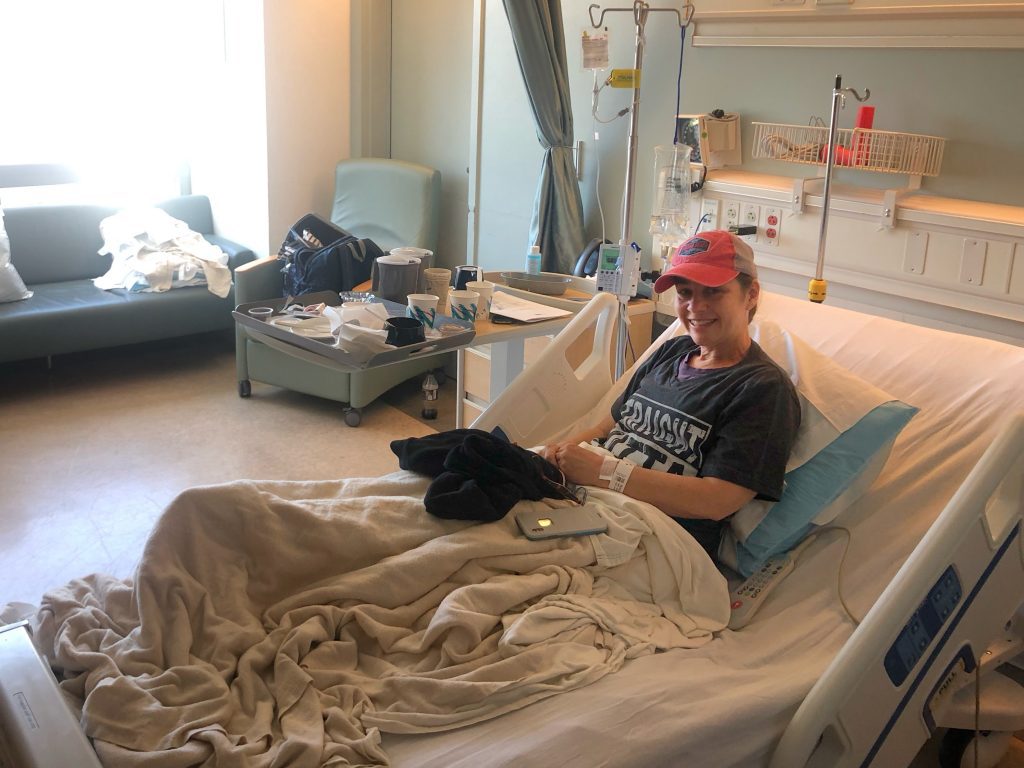
A few weeks ago, I donated my kidney to a man named Eli Valdez. Until our surgery date, we’d never met. I learned of his need when I saw a flyer posted in Starbucks. I wrote about the experience here and my husband’s perspective is here. It was an emotional, painful but still wonderful experience.
In the weeks leading up to the donating and since I’ve been asked lots and lots of questions. I’ve learned that most people know very little about organ donation. I didn’t know much either until I started the evaluation process. I am not encouraging everyone to go out now and be a donor. But I do want anyone who might be interested to learn more. Feel free to contact me if you have any additional thoughts or questions. I’d be happy to give whatever information I can.
Did you get paid?
No, it’s illegal in the United State to accept compensation for an organ.
What do they do with the recipient’s kidneys?
Well, they disconnect them and just leave them there.
So, a person can have 3 kidneys?
Yes, a person can have 4 or 5 depending on how many times they’ve needed a transplant. If the donor is a baby doctors will sometimes insert both of the baby’s kidney into the recipient. It’s all kind of fascinating.
How do you know he (the recipient) is a good person?
I don’t. It doesn’t really matter to me. I hope Eli takes good care of my kidney. But that’s really up to him. I’ve given him a chance, and that’s it. Everyone (literally, every person) deserves a chance.
Why can’t someone in his family give him a kidney?
There are lots of reasons someone cannot donate. High blood pressure, diabetes, kidney stones and chronic use of medication for arthritis are all reasons someone is denied. In fact, I learned that only 15% of people who want to donate are actually approved for surgery. Also, just because someone is healthy enough to donate doesn’t mean they should. There are many personal reasons such as family situation, employment, finances and religious beliefs that may also make it difficult to donate.
Who pays for the testing and surgery?
The recipient’s insurance pays for everything. The only out-of-pocket cost for the donor is transportation and lost wages during recovery. For me these were negligible. I did get a free parking voucher and one for a meal in the hospital cafeteria. I LOVE free parking so this was a nice gesture from the kidney program.
What happens if the donor gets kidney disease and needs a kidney in the future?
There is a 1% chance I will need a kidney donation in the future. If that does happen, I would jump to the top of the transplant waiting list. I didn’t know this before this process and it was probably the most comforting piece of information I learned.
Is your life expectancy affected by having only one kidney?
My life expectancy will not be affected by my one kidney assuming I don’t start performing high risk behavior that could injure my remaining one. So that rules out skydiving. However, I personally would never, ever, have done that anyway. Just the fact that I was deemed healthy enough to donate means I will likely live longer than someone who is ineligible to give a kidney. But I believe we never know how much time we have. I want to make the most of each day I’m given. There are no guarantees.
Were you an exact match?
I was not an exact match for Eli. Really this is an extremely complicated issues that I am not qualified to expand upon. However, I was a good enough match for Eli. I learned though that one does not need to be a match at all to donate a kidney to a friend or loved one. There is something called paired exchange. Basically, if someone is approved to donate but isn’t a match they can be matched with a total stranger in a database. Then another stranger would match with your loved one. It’s absolutely revolutionary.

With Eli and his wife, Monica, two days after transplant. My husband, Jeff (tall guy with hat), was the best support team ever.
How was the recovery?
It was much harder than I anticipated. I think it’s hard to go into surgery completely healthy and imagine the kind of pain I’d experience. It was rough. For the first day I was on constant stream of pain killers. But by the next day I was up and moving. For me, the most difficult part of recovery was my stomach issues. The anesthesia and pain medications did a not-so-nice job on my gastrointestinal system. But within two weeks I was driving, walking, and mostly back up to speed. Doctors say after 6 weeks I’ll be like my old self.
What is the follow up you have after donating?
I will follow up with the doctors at 6, 12 and 24 months just to check my kidney function. Other than that, I go about my life. The only change I’ll have to make is taking less Advil, which is probably a good thing in the long run for me anyway.
How difficult is it to find a kidney donor?
For some people they have so many friends and relatives that are lined up to give. Many are healthy and can just donate. However, for many people, they struggle to find someone to help them. They advertise their need on the backs of cars, in Starbucks and on social media. Think about how hard it must be to do this. Right now, 113,601 people are waiting for a life-saving organ. This means they are waiting for someone to die who is also an organ donor and also a match. Eli, my recipient and I are both blood type O+. I learned that people with this blood type wait the longest because they can only receive a donation from someone else who has the same blood type. People with other blood types can receive from multiple types. It’s complicated and the wait can be excruciating.
What are the chances of rejection and how would you feel if your kidney didn’t take?
People who receive organ transplants are on antirejection medication for the rest of their lives. There is always a chance of rejection. But the doctors monitor kidney function and other measures very carefully, and they can intervene if rejection seems to be in progress. It is absolutely possible that my kidney will not work out for Eli or that it will eventually fail. But any chance was worth it for me. Side note: my doctor told me at his clinic they just celebrated a parent who donated to a child 50 years ago and both patients and kidneys were still going strong. How incredible is that?
If I want to be a donor but don’t know someone in need who should I contact?
Contact your local kidney transplant program or click here to learn more and register.
If I’m not sure about giving a kidney right now, how else can I help?
Become an organ donor in death. If everyone did that, the numbers of people waiting would drop drastically. Also, give blood, platelets or join the bone marrow registry. If none of this feels comfortable, here are some other options: volunteer at a dialysis clinic, offer to drive someone on dialysis or sit with someone having treatment. Lastly, it doesn’t take much to make someone’s day, especially someone with a chronic illness. If you know someone who is dealing with an illness, just ask, “Hey, how can I help?”

 With my parenting brain realigned I understood there were lots of things I was doing for my children that needed to stop. Out was checking up to see if they did their homework. Out was making sure the gym uniform was washed, dried and returned in the backpack. Out was cooking every morsel of food that was to be put into their mouths. Additionally, I made sure to give the kids several chores in the house that they were required to do on a daily basis. When my kids instinctively ask for help opening a cheese stick (yes 13- and 16-year-olds still ask this) or how to spell astronaut I now tell them to figure it out.
With my parenting brain realigned I understood there were lots of things I was doing for my children that needed to stop. Out was checking up to see if they did their homework. Out was making sure the gym uniform was washed, dried and returned in the backpack. Out was cooking every morsel of food that was to be put into their mouths. Additionally, I made sure to give the kids several chores in the house that they were required to do on a daily basis. When my kids instinctively ask for help opening a cheese stick (yes 13- and 16-year-olds still ask this) or how to spell astronaut I now tell them to figure it out.









